Are you ready to take the next step in your medical career? Crafting a compelling letter for your postgraduate residency program application is crucial, as it's your chance to showcase your passion and qualifications. From highlighting your unique experiences to expressing your dedication to patient care, each word matters in guiding the selection committee toward seeing you as the ideal candidate. Ready to dive deeper into crafting the perfect application letter? Let's explore what makes an application truly stand out!
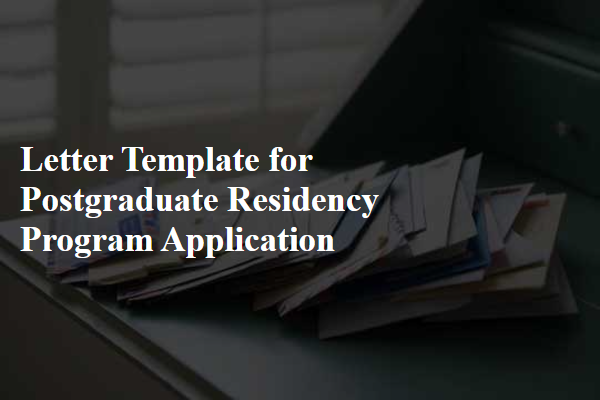
Contact Information and Salutation
Creating a well-structured application for a postgraduate residency program requires clarity. Important elements include your full name, current address, phone number, and email address, presented in a professional format at the top of the document. Following this, a formal salutation such as "Dear Program Director" should be used, maintaining respect and professionalism essential in higher education applications. This clear organization aids in creating a strong first impression.
Purpose and Intent Statement
Crafting a strong Purpose and Intent Statement is crucial for postgraduate residency program applications. A comprehensive statement should reflect the applicant's dedication to the chosen specialty, demonstrate a deep understanding of the field, and articulate future aspirations. Highlight relevant clinical experiences, academic achievements, and personal motivations that outline why the applicant is suited for the residency. Mention specific programs or institutions of interest, citing notable faculty members or research opportunities that align with the applicant's career goals. This statement ultimately serves not only to inform but also to resonate emotionally with selection committees, illustrating passion and commitment towards advancing healthcare within the chosen specialty.
Academic and Clinical Achievements
Postgraduate residency programs require a detailed account of academic and clinical achievements to assess candidates effectively. Academic achievements, such as a cumulative GPA of 3.8 from a prestigious institution like Harvard Medical School, highlight dedication to coursework in subjects like pharmacology and pathology. Clinical achievements, including a completed rotation in internal medicine at Massachusetts General Hospital, demonstrate hands-on experience in patient care, where managing over 30 patients per week under the supervision of experienced mentors provided invaluable insights. Participation in research projects that resulted in publications in peer-reviewed journals further signals a commitment to advancing medical knowledge. Additionally, involvement in community health initiatives, such as flu vaccination drives in underprivileged neighborhoods, showcases a commitment to public health and a well-rounded understanding of patient needs.
Alignment with Program's Goals
The postgraduate residency program at Johns Hopkins University focuses on patient-centered care and evidence-based practices. Aligning with these goals, my clinical experiences at New York-Presbyterian Hospital emphasized the importance of delivering high-quality healthcare tailored to individual patient needs. My participation in interdisciplinary rounds highlighted collaboration with diverse healthcare professionals, fostering a holistic approach to treatment. Research projects conducted at Boston Medical Center provided insight into the effectiveness of data-driven methodologies in improving patient outcomes. Through these experiences, I have developed a strong commitment to lifelong learning and continuous improvement in clinical practices, which resonates with the program's dedication to innovation and excellence in medicine.
Closing Remarks and Call to Action
Closing remarks in a postgraduate residency program application highlight enthusiasm for the opportunity and reinforce commitment to the field. An aspirant expresses gratitude for the selection committee's consideration of their application, acknowledging the program's prestigious reputation. The applicant outlines specific skills and experiences that align with the program's values, emphasizing readiness to contribute positively to the residency environment. The call to action encourages further communication, inviting the committee to request additional information if needed. Expressing eagerness to interview, the applicant underscores dedication to advancing their medical knowledge and competencies within the program's supportive framework.
Letter Template For Postgraduate Residency Program Application Samples
Letter template of interest for postgraduate residency program application.
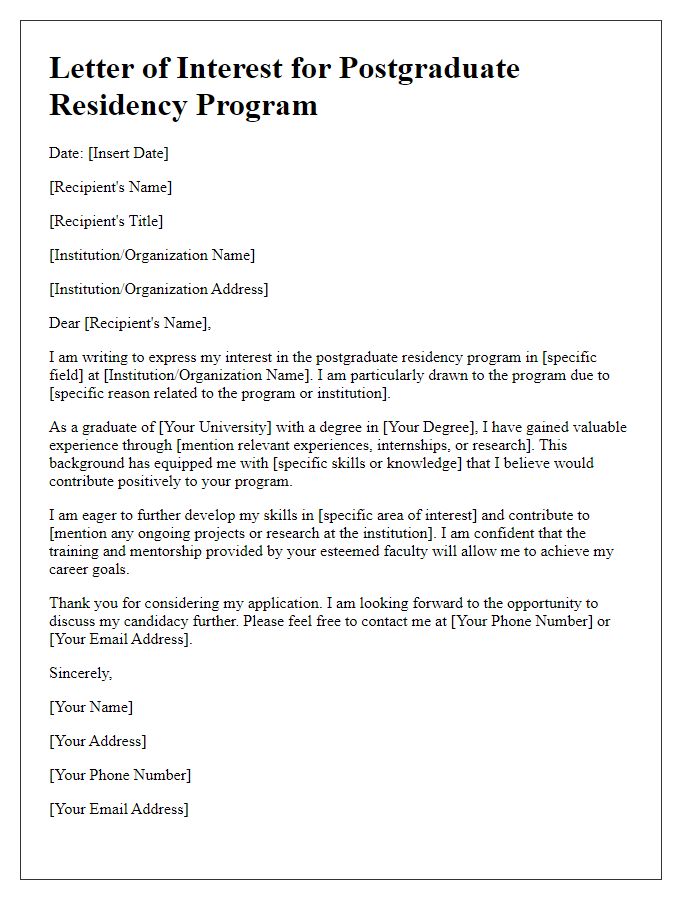
Letter template of intent for postgraduate residency program application.
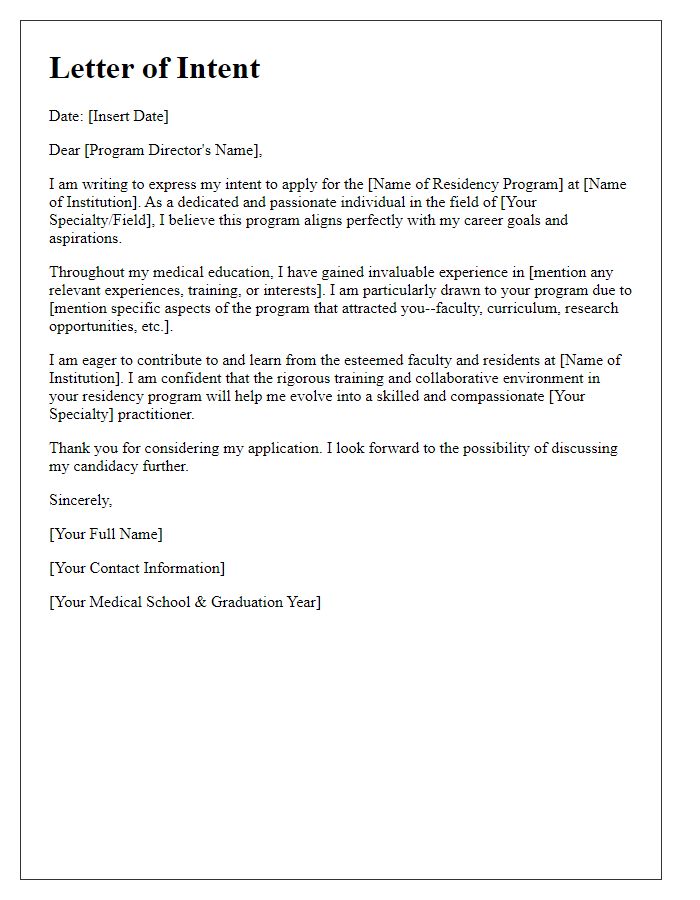
Letter template of motivation for postgraduate residency program application.
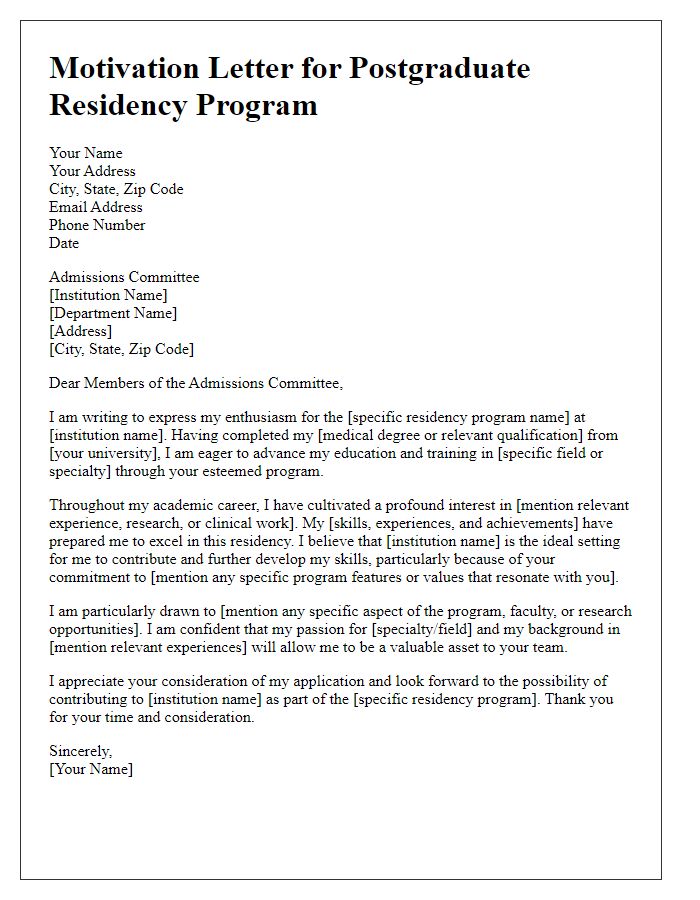
Letter template of support for postgraduate residency program application.
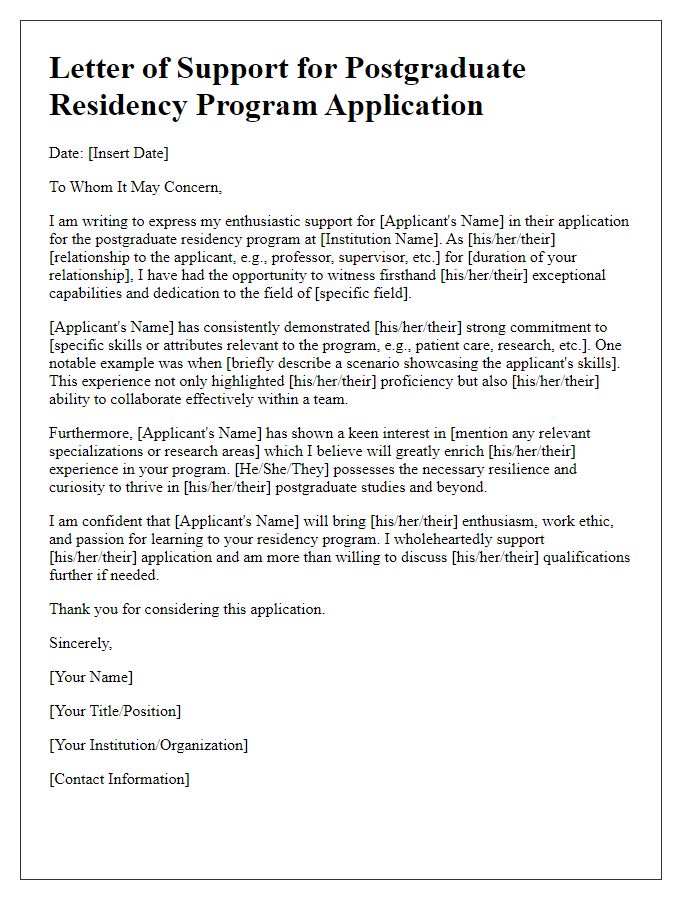
Letter template of recommendation for postgraduate residency program application.
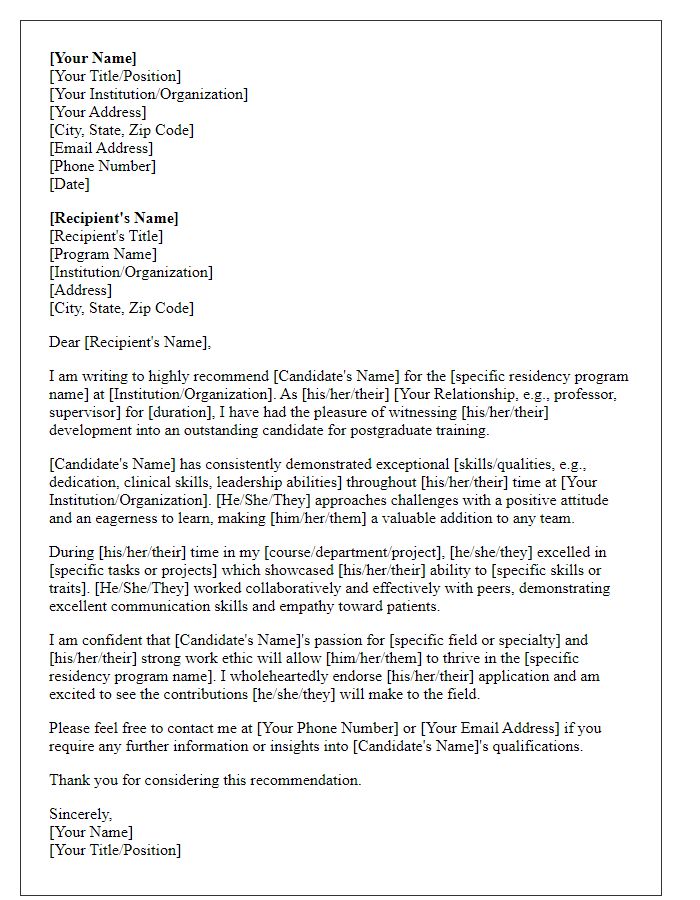
Letter template of inquiry for postgraduate residency program application.
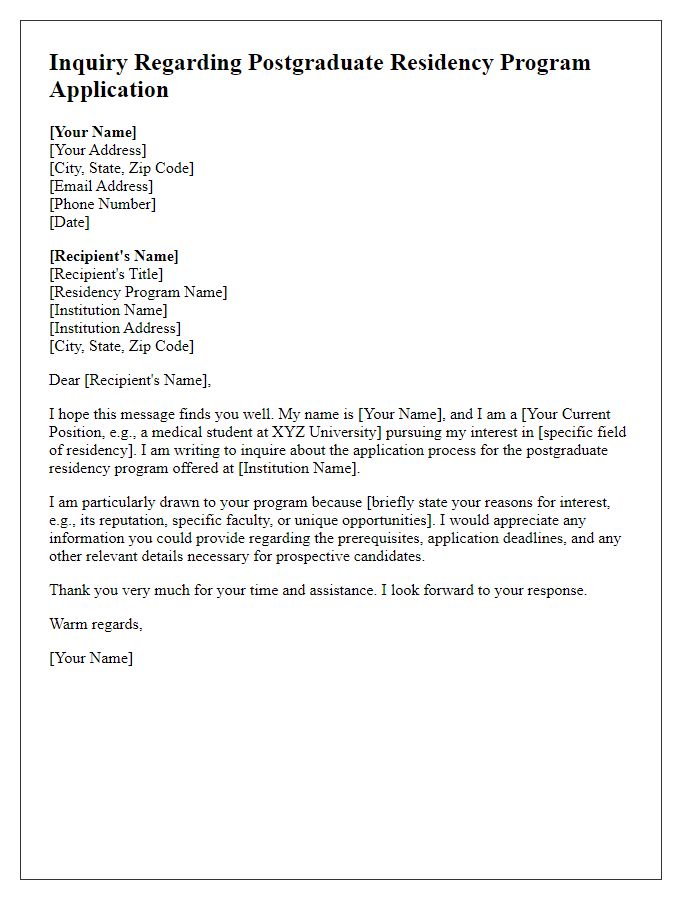
Letter template of follow-up for postgraduate residency program application.

Letter template of confirmation for postgraduate residency program application.
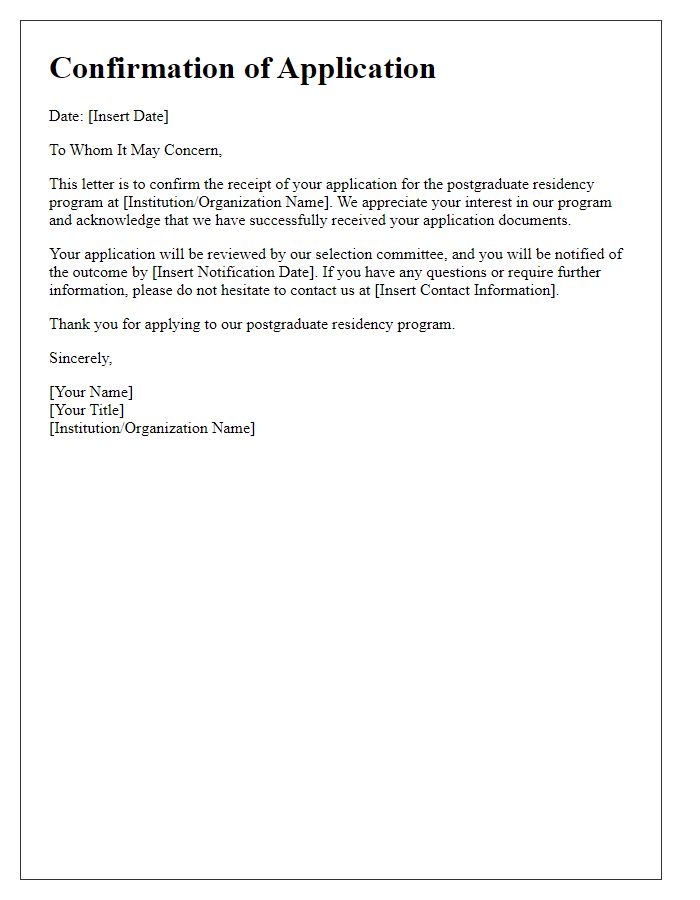
Letter template of personal statement for postgraduate residency program application.
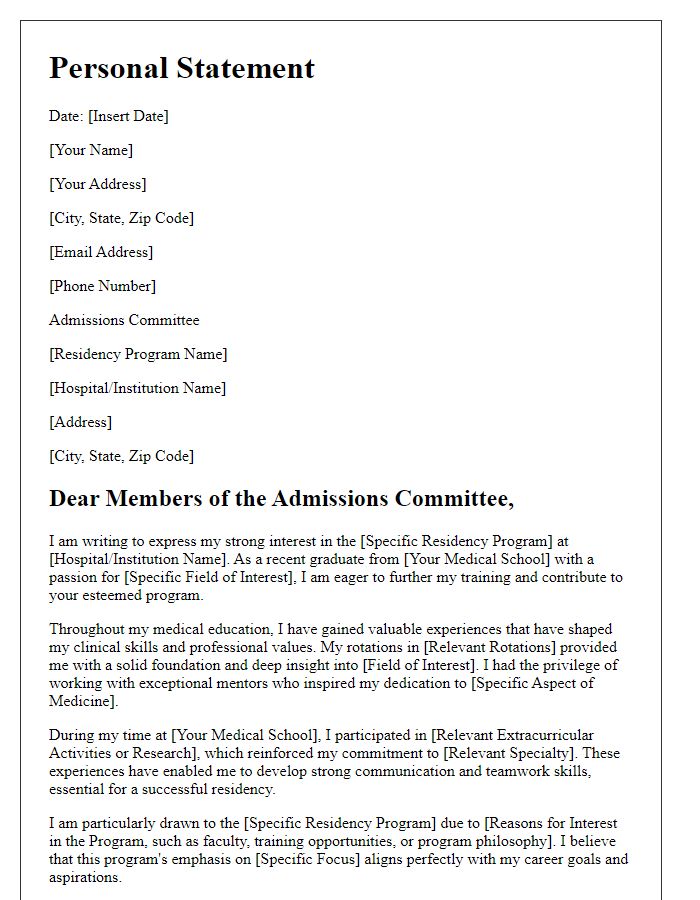

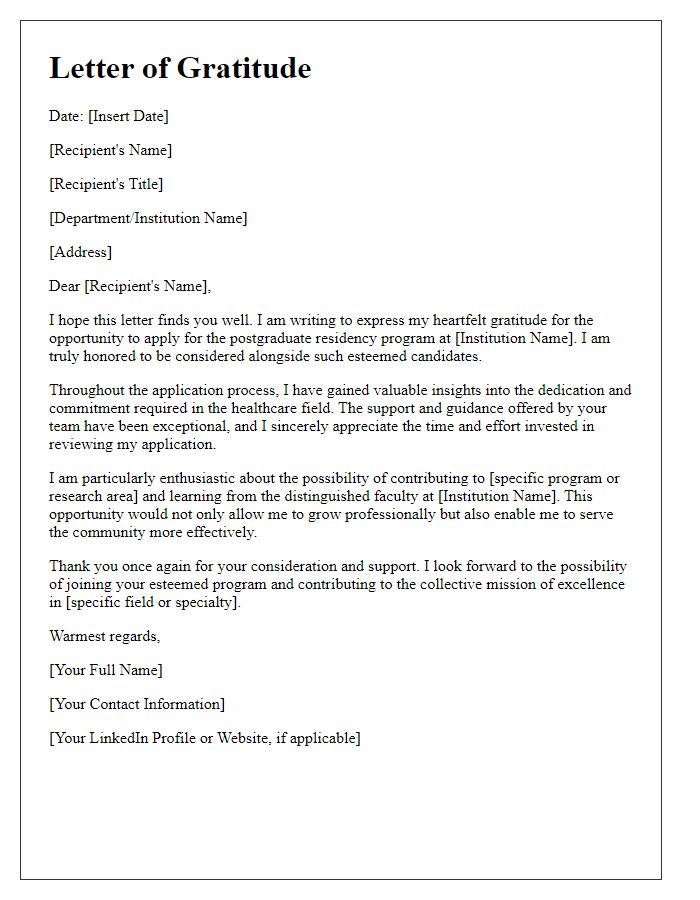


Comments